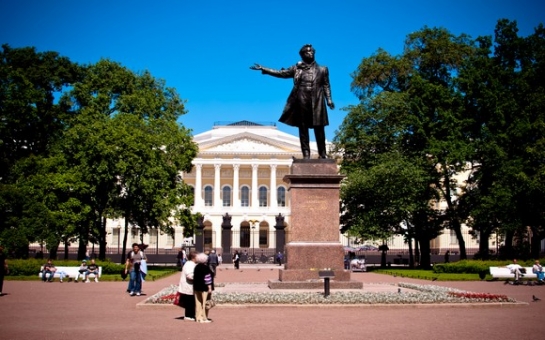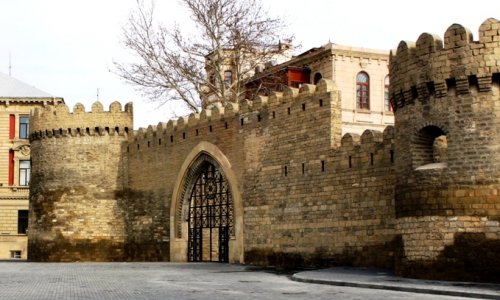Alexander Pushkin is a giant of Russian literature and considered the father of the modern Russian language. And just as his life remains the subject of numerous myths, the circumstances of his death have become similarly dramatized.
The most essential facts are that in February of 1837, after Pushkin challenged George D’Anthes, the adopted son of the Dutch ambassador, to a duel for flirting with his wife, the two men met at a secluded stretch along St. Petersburg’s Chernaya Rechka where Pushkin was shot, dying two days later from his wounds.
This was not the first time Pushkin had put his life on the line for the sake of honor. He was a hotheaded man who regularly fought or threatened duels when he felt slighted. He gambled, womanized and drank, not exactly exceptional traits in the aristocratic social circles of the era, and once fell ill after sitting in the rain outside of a prostitute’s door. While in exile, he challenged a man to a duel when the man was visibly surprised Pushkin hadn’t read a certain book.
The beginning of the end came when Pushkin met George D’Anthes, a Frenchman and career officer in the Tsar’s army, in 1834, and D’Anthes took to publicly flirting with Pushkin’s wife. D’Anthes and her were often seen walking around St. Petersburg, leading to rumors that angered the poet. To compound his anger, he received a series of letters in 1836 calling him a “cuckold” and insinuating that his flirtatious wife was being far more than just chatty.
Not only was Pushkin faced with rumors of infidelity but sinister ones about his talent. By the time of his death, some believed that he had used up his talent, that, as John Bayley wrote in his review of one of the many biography’s regarding Pushkin, “he was a spent force in literature.” His literary magazine had proven to be a dud and provided little income to the struggling poet, and he was drowning in debt.
To further Pushkin’s unease, he was given the title of valet in the Russian court, the lowest title available and one that forced him to attend the court’s many balls and social events, where he then had to watch as even the tsar flirted with his wife.
So it was at that moment in Pushkin’s life that he felt the most honorable thing he could do was challenge D’Anthes to a duel. On a cold, snowy February day, Pushkin and D’Anthes took their paces and, as was tradition, traded shots rather than firing at the same time. D’Anthes shot first, hitting Pushkin in the stomach, a fatal wound that the poet succumbed to after two days of agonizing pain.
News of his death brought a large crowd to the poet’s house and in order to avoid idolizing the fallen poet too much, the tsar ordered police to protect the home and kept secret the details of his funeral, eventually burying him at a monastery in Svyatogorsk.
In an indirect manner, Pushkin’s death led to the demise of the era’s other great poet, Mikhail Lermontov. Pushkin’s junior, Lermontov was exiled to the Caucasus after writing a poem in the aftermath of Pushkin’s death that blamed Russian society for his untimely demise. While in the Caucasus, Lermontov was challenged to a duel by an old friend. Although it is reported that Lermontov deliberately missed his shot, his friend was not so kind, killing Lermontov with his in 1841; “A dog’s death for the dog” in the words of Tsar Nicholas I, who was no fan of either poet.
(sptimes.ru)
Bakudaily.Az











